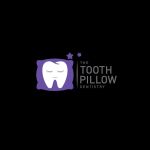- 1-recognizing-oral-fungal-infection-in-seniors
- 2-common-signs-and-symptoms
- 3-causes-and-risk-factors-in-the-elderly
- 4-diagnosis-and-importance-of-early-detection
- 5-treatment-options-for-oral-fungal-infections
- 6-preventive-measures-and-care-for-seniors
- 7-how-dentistry-toothtruth-can-help
1. Recognizing Oral Fungal Infection in Seniors
Oral fungal infections, particularly oral candidiasis or thrush, are a common yet often overlooked problem among seniors. As the immune system weakens with age and other health conditions become more prevalent, the risk of developing fungal infections in the mouth increases significantly. Recognizing the early signs of oral fungal infection in seniors is crucial for timely intervention and to avoid complications that can affect eating, speaking, and overall quality of life.
Many caregivers and seniors themselves may mistake these symptoms for simple irritation or dry mouth, delaying necessary treatment. This article delves into identifying the typical symptoms, understanding the causes, and exploring treatment options tailored for elderly patients.
2. Common Signs and Symptoms
The signs of oral fungal infection in seniors can vary but generally include:
- White, creamy patches: These are often seen on the tongue, inner cheeks, gums, or roof of the mouth and can sometimes be wiped off, leaving red, raw areas underneath.
- Redness and soreness: Inflamed areas that may cause discomfort or burning sensations, especially when eating spicy or acidic foods.
- Difficulty swallowing or speaking: Severe infections may interfere with daily functions.
- Cracking at the corners of the mouth: Also known as angular cheilitis, which is often linked to fungal infections.
- Loss of taste or an unpleasant taste in the mouth: These subtle symptoms often go unnoticed but are important clues.
One senior patient shared her experience of initially ignoring white patches that later progressed to painful ulcers affecting her ability to eat. Her story emphasizes the need for awareness and early detection.
3. Causes and Risk Factors in the Elderly
Several factors contribute to the higher prevalence of oral fungal infections among seniors:
3.1 Weakened Immune System
Aging naturally weakens immune defenses, making it easier for fungi like Candida albicans to multiply unchecked.
3.2 Use of Dentures
Improperly cleaned or ill-fitting dentures create an environment conducive to fungal growth. Many seniors wear dentures daily, increasing their risk.
3.3 Medications and Health Conditions
Antibiotics, corticosteroids, diabetes, and dry mouth caused by medications or diseases reduce oral flora balance, promoting fungal infections.
3.4 Poor Oral Hygiene
Lack of regular dental care and cleaning can exacerbate fungal colonization.
Understanding these risk factors helps caregivers and seniors take proactive steps in prevention and care.
4. Diagnosis and Importance of Early Detection
Diagnosing oral fungal infection in seniors involves a thorough clinical examination by a dental professional or healthcare provider. They may take a swab of the affected area for laboratory analysis to confirm the presence of fungal species. Early diagnosis is essential to prevent complications such as spread of infection or secondary bacterial infections.
Ignoring symptoms or self-medicating without professional advice can worsen the condition. Regular dental check-ups and prompt reporting of oral discomfort greatly improve outcomes.
5. Treatment Options for Oral Fungal Infections
Treatment typically depends on the severity and underlying causes but often includes:
5.1 Antifungal Medications
Topical antifungals like nystatin or clotrimazole lozenges are commonly prescribed for mild cases. For more severe or persistent infections, systemic antifungals such as fluconazole may be necessary.
5.2 Denture Care and Hygiene
Proper cleaning, soaking dentures overnight in antifungal solutions, and ensuring correct fit can reduce fungal growth.
5.3 Managing Underlying Conditions
Optimizing control of diabetes or modifying medications that contribute to dry mouth can aid treatment success.
5.4 Supportive Care
Maintaining hydration, avoiding irritants like tobacco or alcohol, and eating a balanced diet support healing.
Many seniors report rapid relief after starting antifungal treatment, highlighting the importance of seeking timely care.
6. Preventive Measures and Care for Seniors
Prevention is always better than cure. To reduce the risk of oral fungal infection, seniors and caregivers should:
- Maintain excellent oral hygiene, including brushing twice daily and regular flossing.
- Clean and disinfect dentures daily and remove them at night.
- Visit dental professionals regularly for check-ups and cleanings.
- Stay hydrated and avoid dry mouth triggers.
- Manage chronic health conditions effectively with medical guidance.
- Use antifungal mouth rinses prophylactically if recommended by a dentist.
Case studies show that seniors who adopt these habits experience fewer infections and better overall oral health, enhancing their quality of life.
7. How Dentistry Toothtruth Can Help
At Dentistry Toothtruth, we understand the unique challenges seniors face regarding oral fungal infections. Our comprehensive resources and expert consultations provide tailored advice on recognizing early signs and exploring effective treatment options.
Whether you are a caregiver or senior yourself, Dentistry Toothtruth offers trusted products, professional guidance, and support to maintain optimal oral health. By staying informed and proactive, you can prevent discomfort and complications from oral fungal infections.







 Perla Dental & Orthodontics (Powered by Sonrisa Family Dental)2.0 (34 review)
Perla Dental & Orthodontics (Powered by Sonrisa Family Dental)2.0 (34 review) Palo Alto Endodontic Center5.0 (12 review)
Palo Alto Endodontic Center5.0 (12 review) Custom Endodontics4.0 (67 review)
Custom Endodontics4.0 (67 review) The Tooth Pillow Dentistry0.0 (0 review)
The Tooth Pillow Dentistry0.0 (0 review) Bufano & Bufano DDS PA4.0 (141 review)
Bufano & Bufano DDS PA4.0 (141 review) Dr. Valarie Kreps0.0 (0 review)
Dr. Valarie Kreps0.0 (0 review) The Importance of Oral Health Education During Pregnancy for a Healthy Pregnancy
The Importance of Oral Health Education During Pregnancy for a Healthy Pregnancy Best Tips for Brushing Your Teeth Properly for Healthy Gums: Essential Techniques for Oral Health
Best Tips for Brushing Your Teeth Properly for Healthy Gums: Essential Techniques for Oral Health Why Skipping Dental Checkups Can Lead to Bigger Oral Health Problems
Why Skipping Dental Checkups Can Lead to Bigger Oral Health Problems Advantages of Porcelain Dental Restorations
Advantages of Porcelain Dental Restorations How Can Diabetes Cause Tooth and Gum Problems? Preventing and Managing Oral Health Issues
How Can Diabetes Cause Tooth and Gum Problems? Preventing and Managing Oral Health Issues Healthy Habits for Promoting Good Oral Health and Hygiene: Tips for a Healthy Smile
Healthy Habits for Promoting Good Oral Health and Hygiene: Tips for a Healthy Smile